Goose Farming Eco-Business

💡 Want more business insights? Stay ahead of the curve with our exclusive updates!
👉 Join our Telegram channel for daily business ideas and expert tips.
👉 Follow us on Facebook to never miss a trend or update!
Don’t just read—connect, grow, and innovate with us today!
The increased demand for organic products among city dwellers makes goose farming a promising business venture. Apart from selling meat, profits can also be derived from selling goose down, manure, liver, or feathers.
One advantage of this business idea is the possibility of implementation even on a small plot of land located on the outskirts of a city. This allows you to assess the prospects of the venture with minimal capital investment and evaluate its profitability.
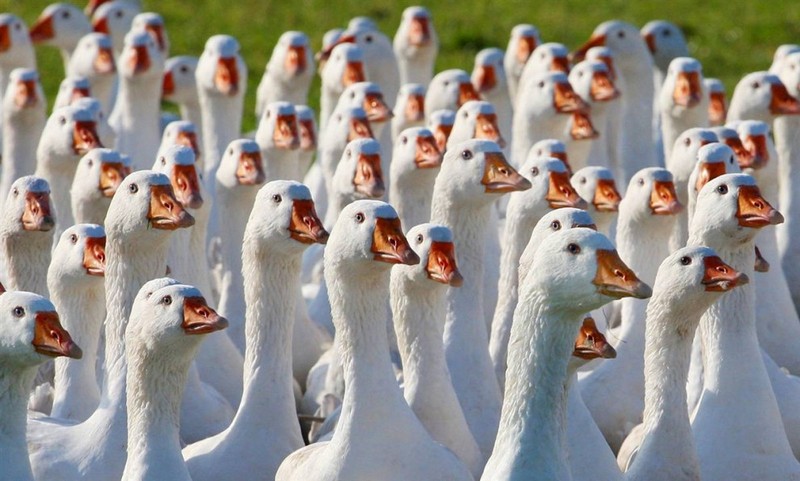
If you are serious about goose farming and aim to generate significant income, it is recommended to find suitable premises. This could be abandoned collective farms, renting a farm plot with a covered building, or building a sufficient area for goose keeping.
Mandatory Conditions for a Goose Farm
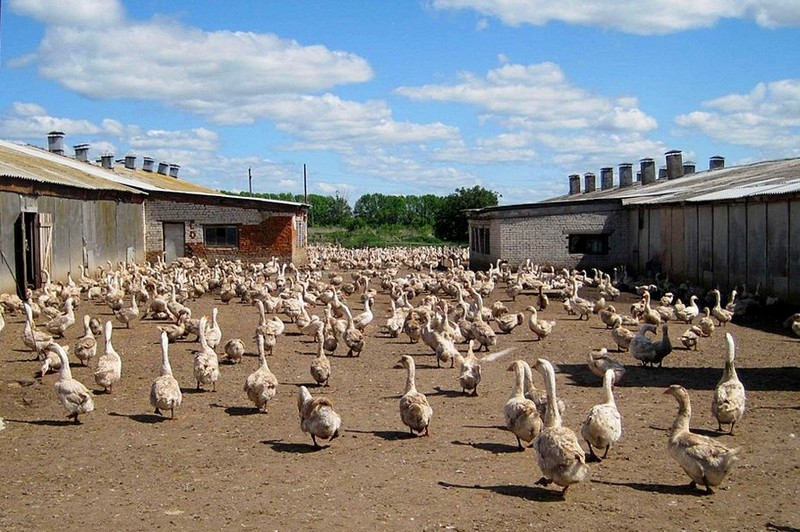
To ensure that goslings feel comfortable and grow well, several conditions must be met:
- The enclosure should be warm to prevent frostbite on the feet due to low temperatures in winter if the pen is not insulated and protected from drafts.
- Having a water source, whether a river, lake, or a self-dug pond measuring 5 by 5 meters, is crucial. Large goose specimens thrive where there is access to water. If you dig the pond yourself, make sure one of the banks has a slope for easy access for the birds.
- Consistent feeding is essential. To raise healthy birds, you need to have a steady supply of feed to avoid any harm from sudden changes in their diet.
Why Engage in Goose Farming?
Geese can gain up to 4 kilograms in 2 months. From one goose, through hatched goslings, you can obtain about 65 kilograms of meat per year. With supplementary feeding, each bird requires 12 kilograms of grain, 4 kg of legumes, and 30 kilograms of greens. If you have a good pasture, supplementary feeding can be as low as 50 grams per bird.
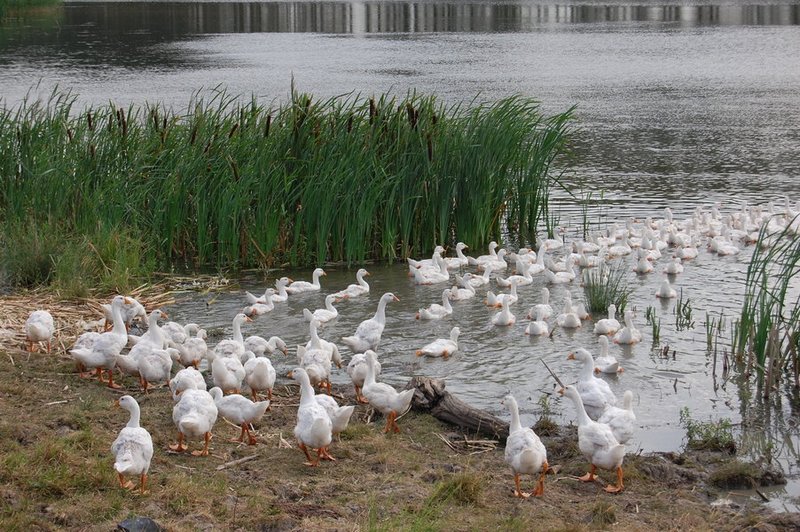
Geese are quite hardy and resistant to diseases. The only thing you need to ensure is an abundance of clean bedding. Similar to meat, goose eggs and liver are sought-after products among buyers. Goose down and feathers can also be sold or used to fill pillows for resale. Goose manure is recommended for sale to gardeners for soil enrichment.
Setting Up the Space

While geese are resilient birds, you will need to provide them with suitable housing. Allocate 1 square meter of shelter space for every four birds. Based on this guideline, calculate the required area. If you plan to keep the birds over winter, heating arrangements need to be made. Young geese can be heated with a brooder, a device that helps maintain optimal air temperature in the early days. Install waterers, feeders, nests, and incubators in the facility.
Acquiring Birds
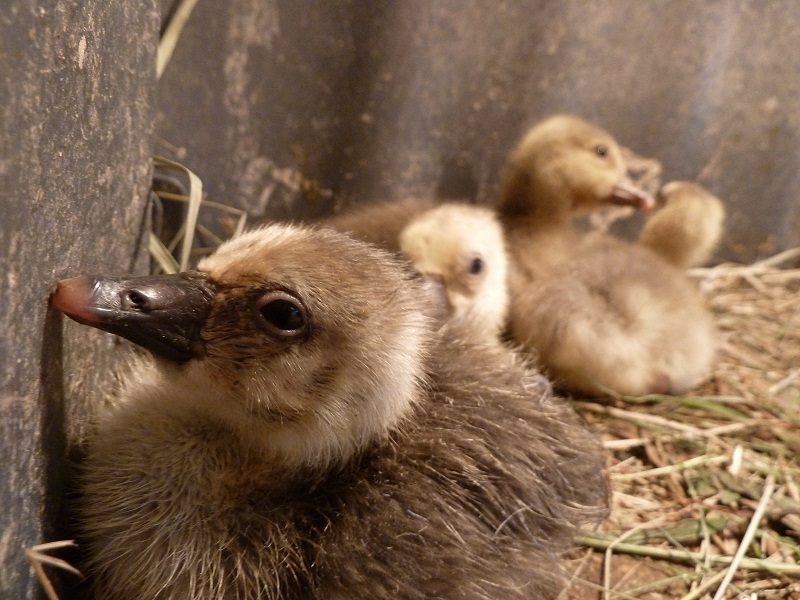
The success of your goose farm depends on selecting the right goose breed. There are numerous breeds suited for various purposes, climates, and living conditions. Initially, focus on ensuring a regular supply of goslings. For starting out, consider raising grey or Holmogory geese. They breed well and are highly resistant to diseases. In moderate climates, opt for Ural geese, while Romen geese are suitable for southern regions.
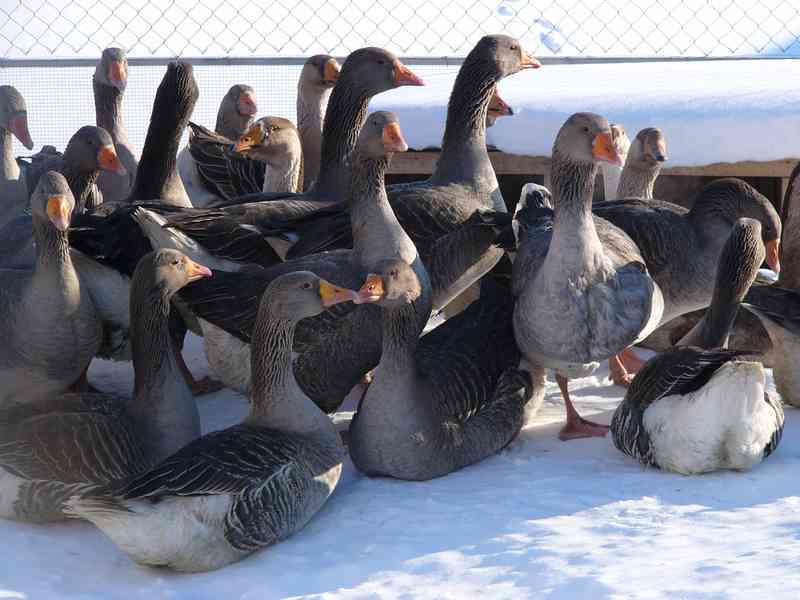
To ensure a stable income, maintain between 400 and 700 birds. Achieving this quantity will take time. Start small. The initial investment should cover bird purchases, equipment, heating the poultry house, heat lamps for birds, waterers, feeders. Several assistants will be needed to care for the geese, who could be family members, turning the goose farm into a profitable family business.
Marketing

To sell your geese, consider renting a space in the market. Provide customers with your business cards during sales. If customers enjoy your meat, they are likely to spread the word and become repeat buyers. Placing an advertisement in a local newspaper can attract buyers interested in bulk purchases of goose meat. Post advertisements on pillars, fences, and notice boards around the market area. Distribute flyers with your contact information in nearby residential buildings. If there are office spaces near the market, circulate leaflets about your products there.
Goose farming could be your first step toward establishing a full-fledged farm, where besides poultry farming, you can engage in other profitable traditional ventures such as sheep farming.
If you find this business idea interesting and practical, share it on your social media feed. Perhaps someone within your social circle has a suitable location that you could utilize for mutual advancement in this business.
💡 Want more business insights? Stay ahead of the curve with our exclusive updates!
👉 Join our Telegram channel for daily business ideas and expert tips.
👉 Follow us on Facebook to never miss a trend or update!
Don’t just read—connect, grow, and innovate with us today!





































.jpeg)













Note: Comments are being moderated and may take a while to appear. There is no need to resubmit your comment.